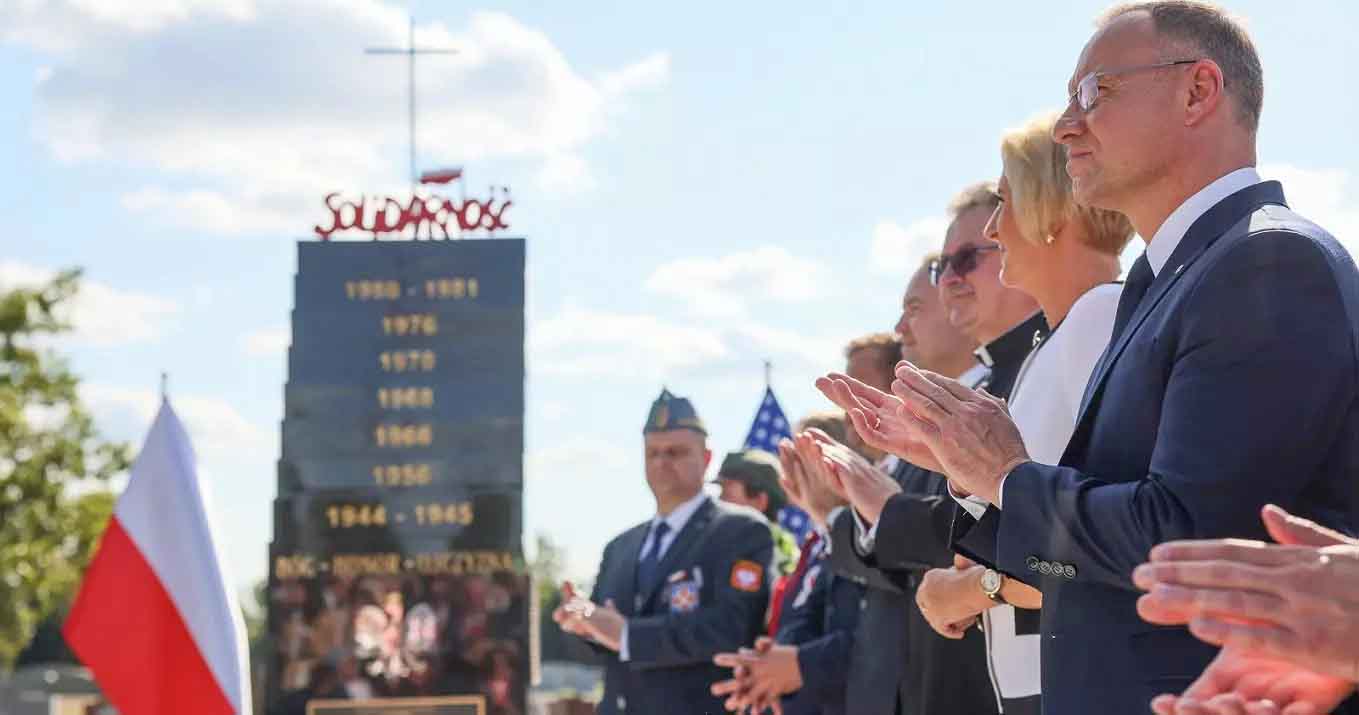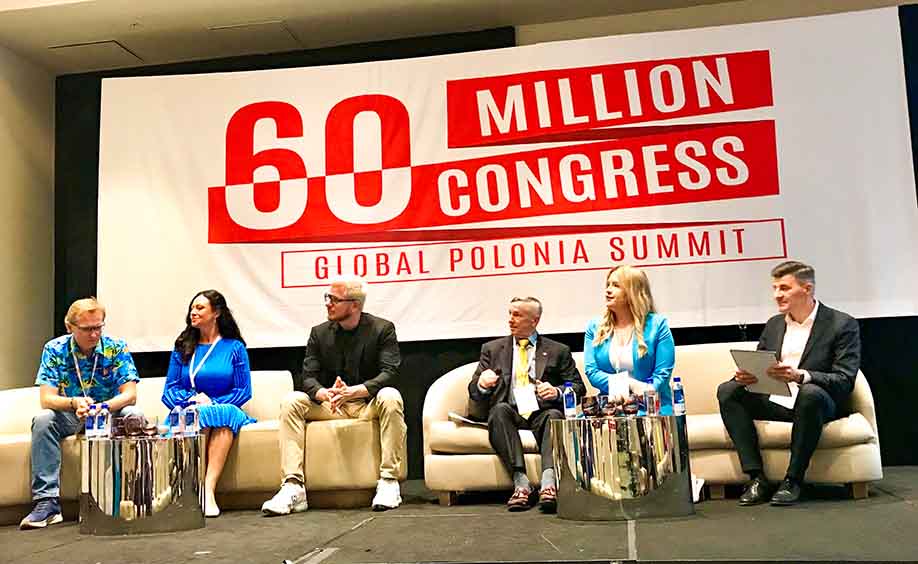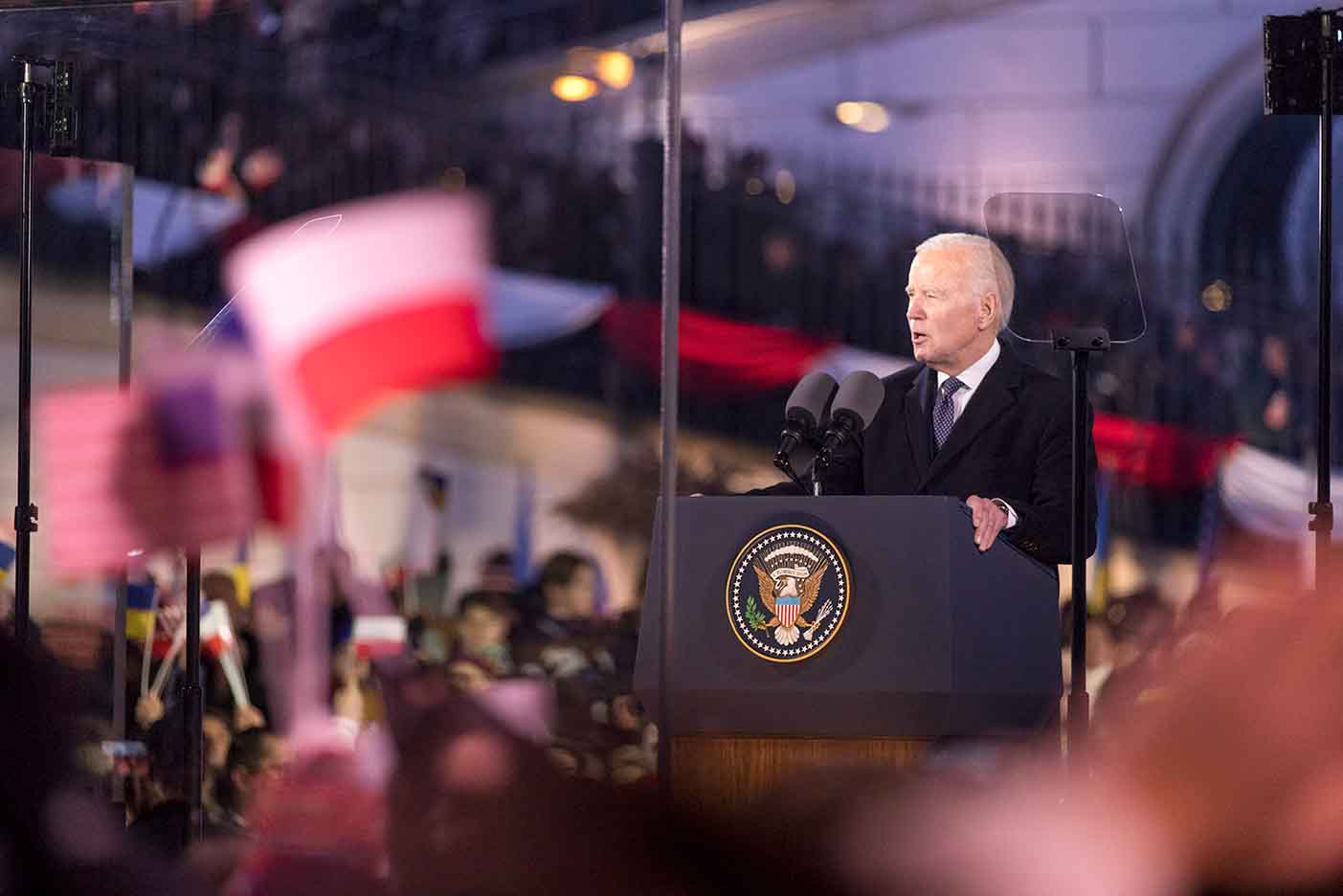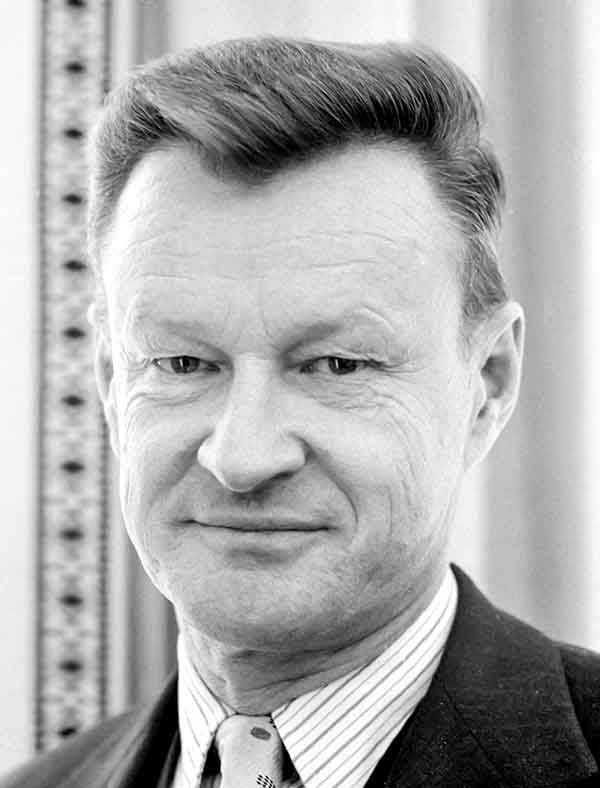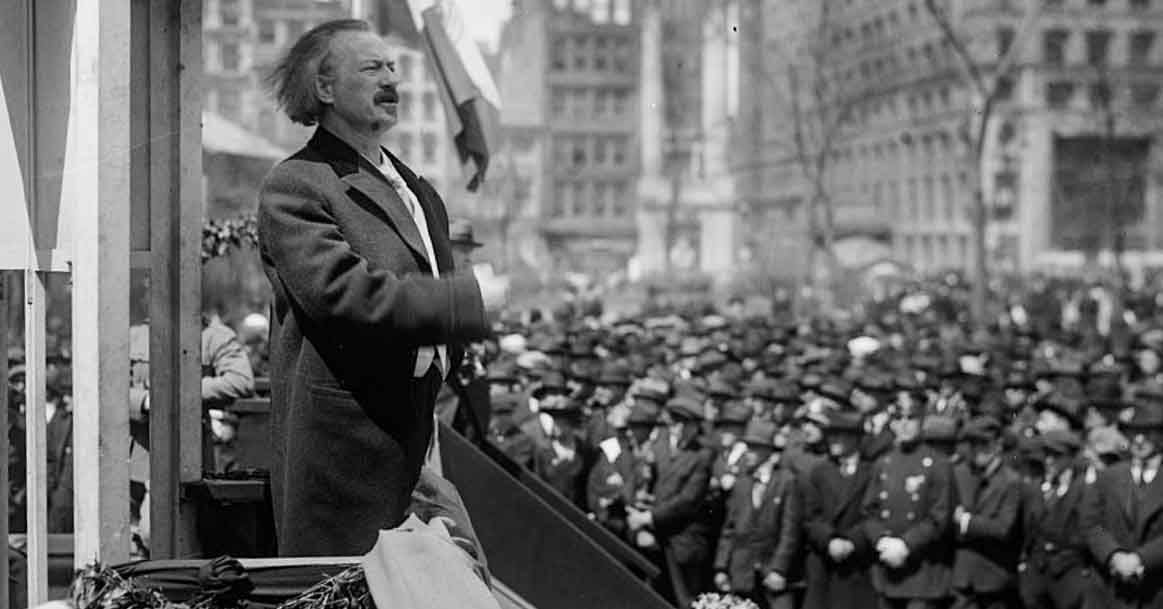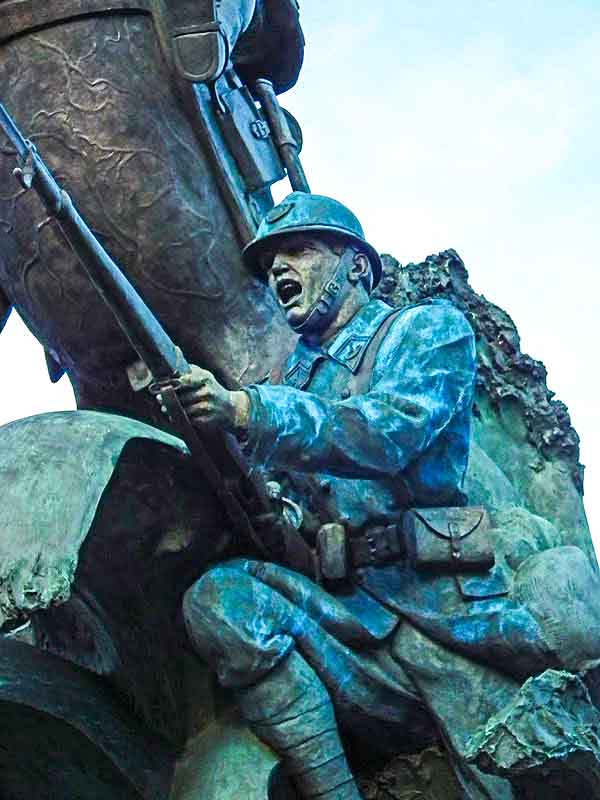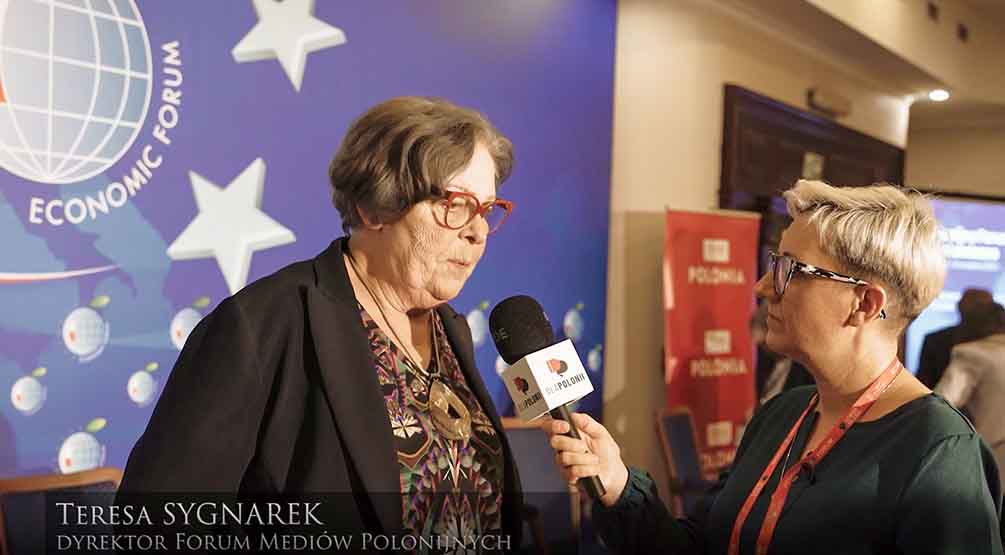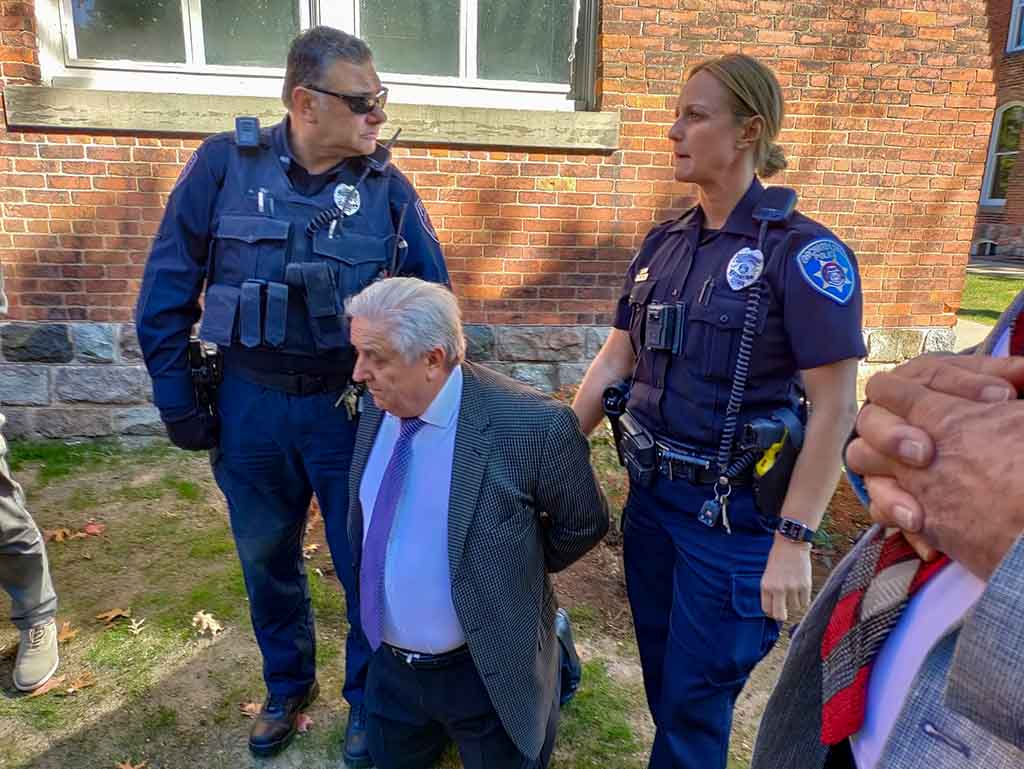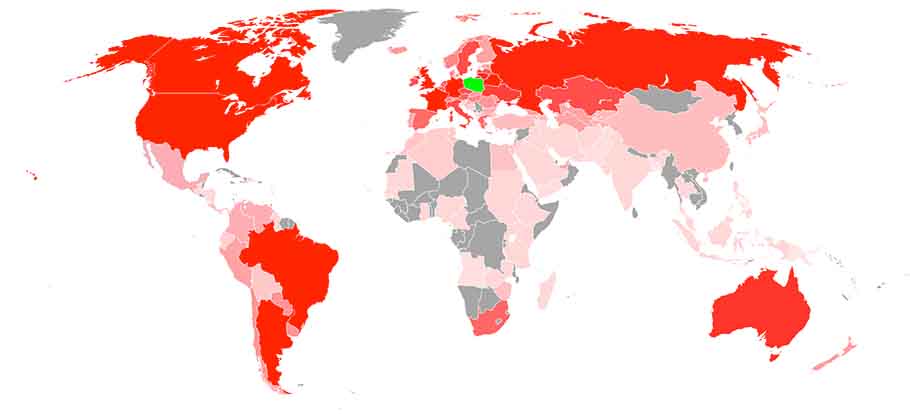I have been writing about pro-Polish lobbying since 2012. I had the opportunity to present the idea of establishing a "government engine": an institution that would promote pro-Polish civic lobbying in North America. I presented this idea at two conferences in New York and Warsaw, with the participation of Polish government agents. The results are negligible so far because, for professional Polish lobbying and civic lobbying to be established in North America, first of all, there must be political will in Warsaw.
Does Poland need pro-Polish lobbying in the US?
In order to guarantee Polish interests, the reform of the Polish army, political, military and economic cooperation, the idea of the Intermarium, and the strategic presence of the United States on NATO's eastern flank, it is necessary to pursue an active state policy, Polish diplomacy and a coordinated influence of the Polish ethnic group on every administration in Washington. Pro-Polish lobbying must exist in several forms: professional lobbying and civic lobbying. An active information policy is an indispensable element of such a concept. Polish media integrated with a dense network of Polonia media must remind us of Polish interests in English daily, and the entire pro-Polish lobbying integrated into the system of Polish organizations in the USA should have an impact on democratic and republican politicians. Polish organizations should influence the entire social structure in the United States and the American media. The essence of the Polish raison d'état is the partnership, cross-party cooperation between the Ministry of Foreign Affairs and the Polish state with the Polish diaspora in the USA.
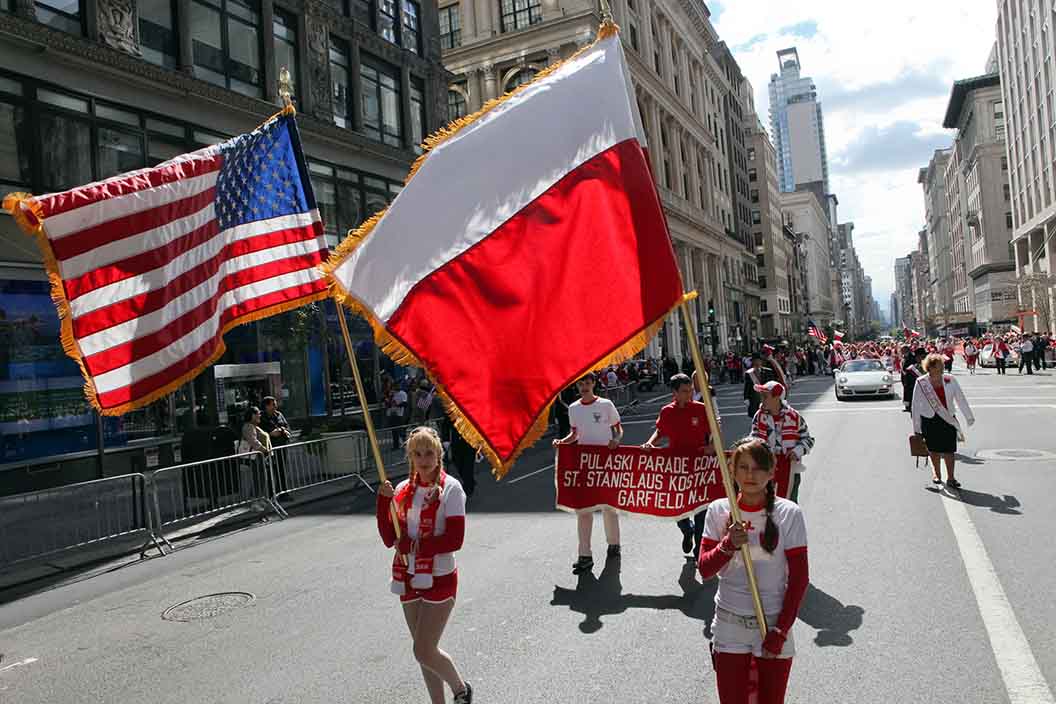
Polonia marching in New York (Sorce: dlapolonii.pl portal)
Achievements of the American Polonia
For the last 100 years, Polonia, the Polish community in America, has been supporting the Polish nation and state uncritically and unconditionally. She sent over 22,000 volunteers to the Blue Army, who later shed their blood for their homeland, like those knights from Giewont. She supported Poland through the Organization of the American Relief Effort in Poland (1919-1923), which donated $250 million to Poland. After the treason in Yalta, the Polish diaspora in America represented the Polish raison d'état and Polish interests with the London government after 1945 and accepted 150,000 Poles (Displaced Persons Program). After World War II, UNRRA, another aid organization, under the pressure of the Polish diaspora, offered Poland 453 million dollars.
It is also the work of the Polish community to have conducted an investigation in the US Congress into the crime at Katyn and to find the Soviets guilty of this crime.
- Ensuring the participation of the United States in the recognition of the Polish borders on the Odra and Neisse by the German state.
- Ensuring the participation of the United States in the financing of Radio Free Europe.
- A brilliant edition of an American postage stamp depicting a Polish white eagle in a crown with a Catholic cross for the millennium of the Polish state.
- Involvement of the US government to participate in the National Endowment for Democracy (NED) — help for the underground Solidarity during martial law.
- Establishment of the Polish American Enterprise Fund (PAEF) — an aid program for Poland.
- Assistance in establishing the law for political refugees from Poland during martial law.
- Lobbying campaign to support Poland's efforts to join NATO (over 9 million signatures were collected under the petition).
- $200 million in material aid for medical equipment and flood relief in 1997 and 2001.
- Actions against US Act 447 and the defense of the Katyn Memorial in New Jersey.
Behind all this were Poles and Americans of Polish origin living in the USA.
Demography
According to the research of prof. Stercula from Colorado State University, 95% of American Poles were born in the United States. In the last census, as many as 8,969,530 admitted being of Polish origin — not as a compulsion, but voluntarily.
For several decades, research has clearly shown that the Polish ethnic group is better educated than the average American. 43.5% have at least a college degree or higher compared to the US average of 33.1%. Americans of Polish descent are richer than the average American ($79,000 compared to the average of $ 63,000 in terms of family income) and are better educated (36 percent, compared to 28 percent, have graduated from university). “The majority (71%) declare belonging to the Roman Catholic Church" (The Piast Institute: "A Survey of Modern Polonia Leadership”, 2013)
The largest middle class outside of Poland
The financial resources of the American Polonia, based on the data of the Polish & Slavic Credit Union, indicate the average savings per person at the level of $17,500. And these are just the savings of a diverse group of 100,000 Polish residents from the New York, New Jersey, and Chicago area. Just multiply these amounts quickly to get the astronomical sum of $1,750,000,000. Let us remind you that the entire Polish diaspora in the USA is estimated at 10 million.
Every year, the Polish community from the United States sends about USD 900 million to Poland (World Bank data, compiled by the Migration Policy Institute), not to mention other countries. These funds are comparable to those invested by foreign companies.
As can be seen from the presented data, this article does not document the aspect of Polonia's business investments. From the very beginning of investing American capital in Poland, it was clear that an important role in this process was played and continues to be played by businessmen of Polish origin from the USA and Canada. However, there is a lack of reliable research on this subject.
The intellectual background of the Polish community
As in Poland, parents invest in their children and try to send them to the best universities throughout the United States. This is a sizeable investment, as the average undergraduate degree per year costs $33,215 (www.collegeboard.org), Master's degree studies are $30,000 to $120,000 per year, depending on the specialty (www.bestmastersdegrees.com), and doctoral studies cost, depending on the specialty, from $53,625 to $113,035 annually.
I have provided the data for public universities. A well-educated American of Polish descent with a doctorate, from the very beginning, is worth about $250,000. Polish student clubs exist and are being established at universities, from the east coast to Alaska and Hawaii. Students from Poland constitute a large and constantly growing group. They need a plan, a vision that unites them around common goals. One of such tools could be the idea of creating a transparent scholarship system. Apart from the Kościuszko Foundation, no other Polish community organization has yet developed a truly legible, accessible and stable scholarship system.
To be serious about creating pro-Polish lobbying in America, scholarships play an important role here. We are also waiting for projects and research programs for our students and scientists addressed from Poland. Without intellectual background, it is impossible to build a Polish lobby. An important role in this process is played by Polish scientists working in the USA, American scientists of Polish origin and others who deal with Polish problems. "The Kościuszko Foundation, a few years ago decided to prepare a list of recognized scientists of exact sciences and thus the Collegium of Eminent Scientists was created,” says Mr. Marek Skolimowski, the new President and Executive Director of the Foundation. “In this way, the Foundation has compiled a list of nearly 400 outstanding professors of science, which is constantly growing." The next step in the near future will be the creation of a similar list of outstanding humanists — Collegium of Eminent Humanists". Unfortunately, this project is not finished.
Initial estimates say there are over 800 tenure scientists in the United States alone. From instructor to professor, this is a serious group of people with enormous intellectual potential that cannot be underestimated. Polish scientists work at hundreds of universities around the world and this group should also be the driving force of development in Poland and Polish universities, research and development centers and government centers of various levels should strive for them. Exactly as the Second Republic did.
There are as many as 20 million people in the world who are proud of their Polish origin. All these people represent a huge potential that needs to be combined in order to serve Poland in the world and help create a modern image of Poland, Polish culture, science, art and economy. It's time for this message to reach the Polish elite. This potential may not only help strategically support Polish interests, but also help change the image of Poland. The 3% of the US population on the American political scene cannot be underestimated. I have been writing about it in the Polonia and Polish press since 2012.
Paderewski's leadership in the USA — a case to study
The result of Ignacy Paderewski's three-year work in the United States was the recruitment of over 22,000 volunteers to the Polish Army in France, the so-called Blue Army, commanded by General Józef Haller.
It is also important that Paderewski had an impressive social infrastructure, namely hundreds of Polish community activists and organizations that recognized the authority of the "master" and followed his leadership, and the Polish press. Paderewski created a huge intellectual and financial base around the "Polish cause". He delivered over 340 speeches and personally wrote thousands of letters to important personalities of American life.
An important fact were the diplomatic efforts of Polish organizations, and above all, the personal influence on and friendship of Ignacy Jan Paderewski with the President of the United States, Wilson. Thanks to the personal involvement of Ignacy Jan Paderewski, President Woodrow Wilson signed a decree on October 5, 1917, allowing Poles from the USA to form an army. Since American law did not allow for the training of a foreign army on its territory, Canada came to the rescue by putting the land outside the town of Niagara-on-the-Lake at its disposal. The camp was named after Tadeusz Kościuszko.
On January 8, 1918, the United States officially spoke for Poland as well. The American President Thomas Woodrow Wilson then delivered a message to the US Congress in which he stated, in item 13 on his agenda:
An independent Polish state should be erected which should include the territories inhabited by indisputably Polish populations, which should be assured a free and secure access to the sea, and whose political and economic independence and territorial integrity should be guaranteed by international covenant.
The Paderewski Institute - the American engine of Polish lobbying
In order to "care for the good of Poland, build pro-Polish lobbying and pass on Polishness to the next generations", especially in strategic countries for Poland, the Polish community must have appropriate tools. The most important of them is Polish English-language television, which would promote the Polish raison d'état 24 hours a day. It is necessary to invest in Polish diaspora media and connect them into a strategic network. Someone has to coordinate this. It could be the Paderewski Institute, which could be the engine of pro-Polish lobbying in North America. It's time to wake up.
The time of organic work has come again — training for leaders and future American politicians of Polish origin on both sides of the barricade. The Polish diaspora in America must re-introduce their representatives to the US Congress. It must have governors, state officials, city presidents, and other prominent representatives in US government agencies. It is also a fact that American Poles work at the lower levels of the American administration. To advance, they need a political springboard to promote them.
The Polish diaspora should, above all, create a sensible political program that would allow it to influence American domestic and foreign policy. For any significant changes to occur in the world of the Polish diaspora, a profound generational change is also needed. The policy of duration turns into a slow assimilation of the Polish diaspora. As a think tank, the Paderewski Institute should educate in English, write good articles, establish or modernize existing organizations — it should, as Adam Bąk from New York said, "wake up the sleeping giant".
Conclusion
Today, in order to maintain Polish identity in the US and to build pro-Polish lobbying, weekend voluntarism is no longer enough. The Polish diaspora needs to be professionalized and its intellectual base must be attracted. The greatest deficit for the Polish diaspora in America is the complete lack of leadership at the national level, with the Polish diaspora being dispersed into four time zones.
The activity of the Polish community is limited to traditional gala balls, taking selfies, and getting excited with new gadgets. The Polish diaspora policy boils down to the usual endurance and making sure that no one comes up with anything new, and to the chasing by the "permanent ones" of specific jobs. The pro-Polish lobbying must have an impact on the American administration, and 3% of the Polish community in the USA. This can be a powerful political force in America.
Finally, I would like to quote the results of research from the University of Kansas. "One dollar invested in lobbying brings $220 in profit." (source: Raquel Alexander, Susan Scholz and Stephen Mazza, Measuring Rates of Return for Lobbying Expenditures: An Empirical Analysis under the American Jobs Creation Act ).
Translation from Polish by Andrew Woźniewicz.





